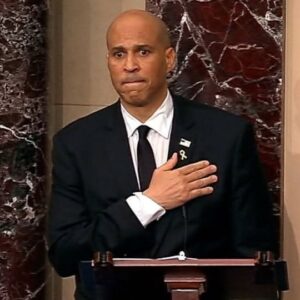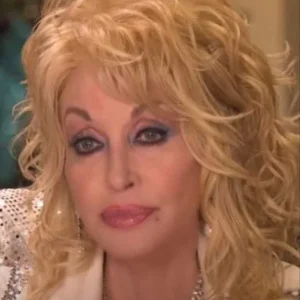Jane Goodall, the world-renowned primatologist and conservationist, passed away at the age of 91 of natural causes while on a speaking tour in California. Widely recognized for her groundbreaking research on chimpanzees and her lifelong environmental advocacy, Goodall also left behind a record of public comments in which she compared former President Donald Trump’s behavior to the dominance displays of male chimpanzees.
Goodall first made such remarks in 2016 during an interview with The Atlantic. Observing Trump’s campaign rallies, she said his mannerisms reminded her of male chimps competing for status. She described how chimpanzees in the wild often engage in noisy, attention-grabbing performances—slapping the ground, throwing rocks, dragging branches—to intimidate rivals and assert authority. According to Goodall, Trump’s campaign style, with its exaggerated gestures and repeated demonstrations of strength, reflected similar strategies for gaining dominance within a group.
In 2022, she reiterated the comparison during an appearance on MSNBC. After being shown video clips of Trump hugging the American flag and boasting about his physical condition, she remarked that the displays echoed the behavior of male chimps attempting to project power. Goodall explained that chimpanzees often try to appear larger, louder, or more intimidating than they are, using spectacle to consolidate leadership. She suggested that Trump’s public persona carried similar traits.
Goodall also commented on the broader political climate in the United States. Speaking as an outside observer, she noted the degree of political polarization and warned of its consequences. She described the divisiveness as a tragedy, emphasizing that instability in American society could ripple across the globe. While she avoided direct involvement in partisan politics, her concern reflected a larger theme in her advocacy: the importance of cooperation, community, and long-term responsibility.
Her comments on Trump remain among the few times she directly addressed a political leader in public. They were consistent with her lifelong tendency to interpret human behavior through the lens of her primatology research, seeing connections between the social structures of chimpanzees and those of human societies.
Beyond these statements, Goodall’s legacy rests on her extraordinary scientific contributions. Beginning in the 1960s at Gombe Stream National Park in Tanzania, she revolutionized the study of primates by documenting tool use, hunting, and complex social relationships among chimpanzees. Her observations challenged the prevailing scientific view that such behaviors were unique to humans and reshaped understanding of the connections between species.
Over the following decades, Goodall became a leading advocate for conservation and animal welfare. She established the Jane Goodall Institute in 1977 to support research and environmental protection. She also founded Roots & Shoots, a youth-led program that encourages young people around the world to engage in community and environmental projects. Her tireless advocacy earned her international recognition, numerous awards, and influence that extended far beyond scientific circles.
Following her death, tributes from scientists, activists, political leaders, and cultural figures emphasized her ability to inspire across generations. Admirers highlighted not only her research but also her moral voice in urging humanity to protect nature and live more sustainably.
In sum, while Jane Goodall was best known for her pioneering work with chimpanzees and her global conservation efforts, she also made pointed public observations about Donald Trump. She described his public performances as reminiscent of chimpanzee dominance rituals and warned of the dangers of deepening political division in the United States. These comments, delivered in interviews during her lifetime, now stand as the factual record of her views on the former president.





